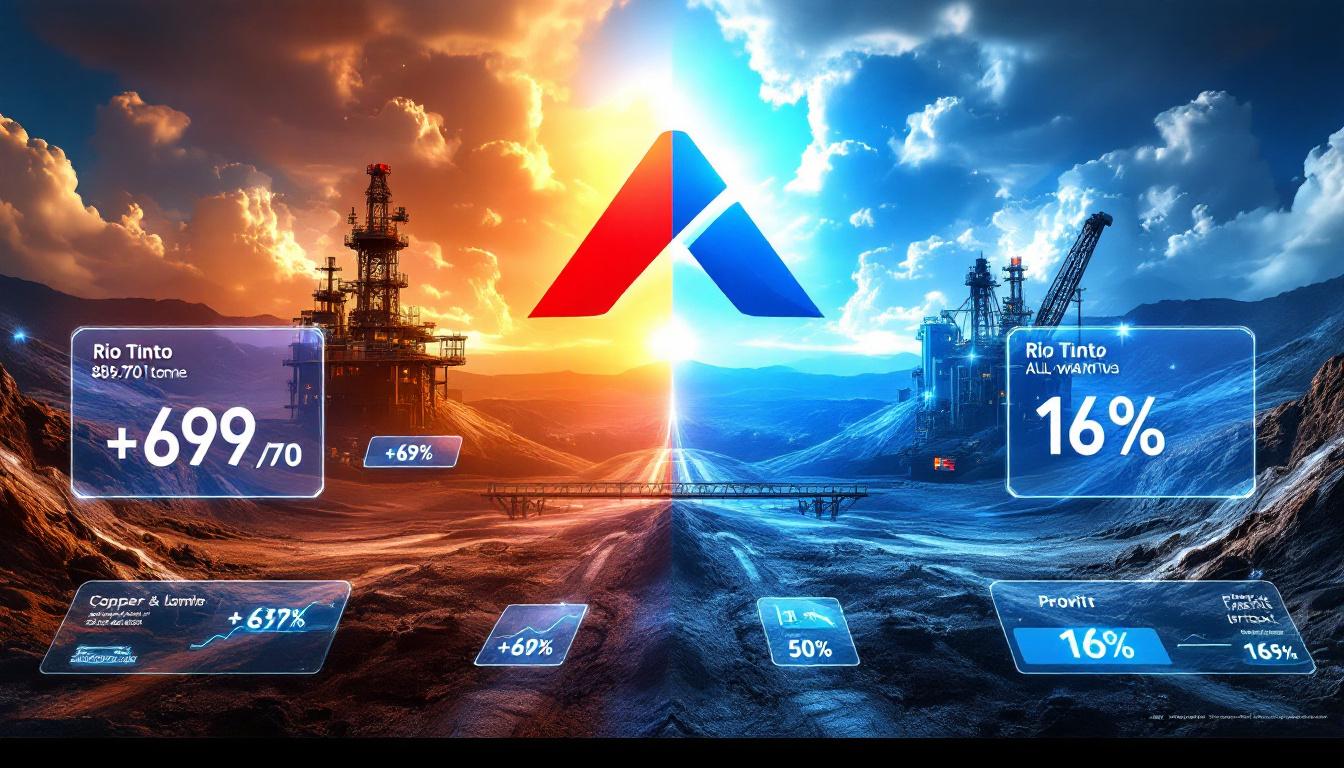How Does Chile's New Permitting Law Impact Mining Investment?
Chile's mining investment landscape is experiencing a transformative shift with the recent approval of comprehensive permitting reform legislation. This landmark change, approved by Chile's Congress with an overwhelming 93 votes in favor, aims to dramatically reduce bureaucratic hurdles while maintaining the country's robust regulatory standards.
The reform represents a carefully calibrated balance between accelerating economic development and preserving environmental safeguards innovations—a delicate equilibrium that has been years in the making. By streamlining administrative processes across both mining and renewable energy sectors, Chile is positioning itself to attract substantial new investment while addressing long-standing industry concerns.
"This will allow us to substantially reduce permitting times, reducing processing times between 30% and 70%, and we'll do it without reducing regulatory standards," Economy Minister Nicolás Grau stated following the legislation's passage, as reported by Reuters.
For mining companies operating in or considering entry to Chile, this represents a watershed moment that promises to enhance project economics through reduced timeline uncertainty and administrative costs.
What Changes Does Chile's New Permitting Law Introduce?
Dramatic Reduction in Processing Times
The most significant impact of Chile's permitting reform is the dramatic acceleration of approval timelines. Projects that previously languished in regulatory limbo for years may now see pathways to approval in a fraction of the time:
- 30-70% reduction in overall permitting times across various project categories
- Streamlined application procedures that eliminate redundant documentation requirements
- Consolidated review processes that maintain environmental rigor while reducing administrative overlap
- Standardized evaluation criteria to ensure consistency across different types of mining projects
Industry analysts note that these changes maintain the substance of Chile's environmental protections while eliminating procedural inefficiencies that had become significant investment deterrents.
Key Benefits for Mining Companies
For mining operators, the reform delivers several concrete advantages that could fundamentally improve project economics:
- Exploration permits likely to see the most dramatic acceleration, potentially reducing wait times from years to months
- Expansion applications for existing operations benefit from simplified review processes
- Investment planning gains predictability through clearer timeline expectations
- Competitive position strengthened against other mining jurisdictions like Peru and Australia
"The permitting reform addresses what has consistently ranked as the top concern among potential investors in Chilean mining projects—regulatory uncertainty and timeline unpredictability," notes a recent industry assessment from the Chilean Mining Council.
These changes come at a critical time as global competition for mining investment opportunities intensifies, particularly in the battery minerals sector where Chile holds significant advantages.
Why Is This Reform Critical for Chile's Economy?
Strategic Importance of Mining Sector
Chile's economic foundations rest heavily on its mining sector, making regulatory efficiency in this area a national priority:
- World's largest copper producer, with the metal representing a cornerstone of export revenue
- Growing lithium production positions the country as a critical supplier for the global energy transition
- Mining contributions to GDP have historically ranged between 10-15%, highlighting the sector's outsized economic impact
- Regional employment in mining communities represents an essential source of high-quality jobs and economic stability
The reform acknowledges mining's irreplaceable role in Chile's economic development while recognizing that global capital flows to jurisdictions offering both resource potential and regulatory predictability.
Investment Climate Improvement
The permitting reform directly addresses factors that had been suppressing investment in Chilean mining:
- Foreign investment hurdles created by unpredictable approval timelines are substantially reduced
- Capital allocation decisions from major mining companies now more likely to favor Chilean projects
- Competitive disadvantage against faster-moving jurisdictions largely eliminated
- Risk premium previously attached to Chilean projects due to permitting uncertainty should decrease
These improvements come at a crucial moment as global miners evaluate opportunities in critical minerals needed for energy transition technologies.
How Did the Legislation Gain Approval?
Political Support and Opposition
The legislation's passage reflects a pragmatic consensus among Chile's political leadership about economic priorities:
- 93-27 vote with 17 abstentions demonstrates strong cross-party support
- Opposition concerns centered primarily on environmental oversight mechanisms
- Regional representatives from mining areas provided critical backing
- Compromise language on environmental standards helped secure broader support
The strong legislative margin suggests the reform has sufficient political backing to maintain stability through implementation phases—a critical consideration for investors making long-term capital commitments.
Industry Advocacy
Mining sector stakeholders played a significant role in shaping the legislation through years of engagement:
- Industry associations provided detailed documentation of permitting bottlenecks
- Case studies of delayed projects helped quantify economic impacts
- Technical working groups offered practical solutions that preserved regulatory objectives
- International benchmarking demonstrated Chile's competitive disadvantage in permitting speed
This collaborative approach resulted in legislation that addresses industry needs while maintaining Chile's commitment to responsible resource development.
What Other Reforms Are Underway in Chile?
Environmental Assessment System Modernization
Beyond the permitting law, Chile continues work on parallel reforms to its environmental review system:
- Comprehensive modernization aims to improve evaluation processes while maintaining protection standards
- Implementation challenges have delayed aspects of this complementary reform
- Digital submission systems being developed to accelerate documentation review
- Inter-agency coordination mechanisms receiving particular attention
These parallel efforts, while facing some hurdles, demonstrate Chile's commitment to holistic regulatory improvement rather than piecemeal changes.
Lithium Sector Development
Chile's strategic lithium resources are receiving particular focus under new regulatory frameworks:
- Three key salt flats (Agua Amarga, Ascotán, and Maricunga) now have streamlined permitting insights for granting lithium contracts
- Multiple international companies including Eramet, Quiborax, and Rio Tinto actively pursuing opportunities
- State-private partnerships emerging as the preferred development model
- Technical evaluation of lithium resource potential advancing rapidly across multiple sites
The lithium sector developments align with Chile's broader strategy to maintain leadership in mining while adapting to changing global demand patterns, particularly for battery minerals.
What Major Mining Developments Are Occurring Alongside These Reforms?
Strategic Partnerships and Investments
The regulatory reforms are already catalyzing significant investment commitments:
- Rio Tinto's $900 million investment for a 49.99% stake in Codelco's Maricunga lithium project represents a vote of confidence in Chile's reformed system
- Eramet's applications for exploration rights in multiple salt flats signal growing international interest
- Codelco's strategic pivot from exclusively copper to include lithium demonstrates diversification
- Joint venture structures emerging as preferred approach to balance expertise and risk-sharing
These developments suggest the permitting reform is already achieving its intended effect of accelerating investment decisions.
Regional Development Focus
The geographical distribution of new mining activity highlights specific regions positioned for growth:
- Atacama region continues as the epicenter of lithium production with world-class resources
- Infrastructure improvements being planned to support expanded mining operations
- Water management solutions receiving particular attention in water-stressed regions
- Community engagement processes remaining central despite accelerated permitting
These regional impacts underscore the reform's potential to deliver broad-based economic benefits beyond streamlined administrative processes.
How Will This Impact Chile's Position in Global Mining?
Competitive Advantages
Chile's reformed permitting system enhances several inherent advantages in the global mining landscape:
- Resource quality combined with improved permitting creates compelling investment case
- Established mining expertise and infrastructure provide operational advantages
- Political stability relative to many competing jurisdictions remains a key strength
- Strategic mineral portfolio aligns perfectly with energy transition demand growth
The permitting reform effectively removes what had been a significant counterweight to these natural advantages, potentially unlocking substantial new investment.
Potential Economic Outcomes
Economic forecasts suggest several quantifiable benefits from accelerated project development:
- Foreign direct investment in mining expected to increase by 15-25% over the next five years
- Tax revenue generation will accelerate as projects move from development to production faster
- Export growth particularly in lithium could double within three years under optimistic scenarios
- Secondary economic effects including supply chain development and service sector growth
These outcomes depend on effective implementation but represent realistic potential based on the scope of the reforms and industry response thus far.
What Implementation Challenges Might Arise?
Regulatory Capacity Concerns
The accelerated timelines create potential resource constraints within regulatory bodies:
- Staffing adequacy across multiple agencies requires careful assessment
- Training requirements to implement new procedures effectively need dedicated resources
- Technology infrastructure to support faster processing requires upgrading
- Consistency in application across different regions and project types needs monitoring
These implementation challenges are acknowledged but considered manageable given the phased introduction planned for the new processes.
Balancing Interests
Maintaining environmental and community standards while accelerating approvals requires careful calibration:
- Environmental protection mechanisms must function effectively despite compressed timelines
- Indigenous consultation requirements need thoughtful integration into faster processes
- Transparency measures become even more critical during expedited reviews
- Appeal mechanisms must remain accessible despite accelerated primary processes
"The success of Chile's permitting reform will ultimately be judged not just by timeline reduction but by maintaining decision quality and stakeholder trust throughout the process," notes a recent assessment from environmental law experts.
These balancing considerations highlight the sophisticated approach needed for successful implementation.
FAQs About Chile's New Permitting Law
How much faster will mining permits be processed?
The new legislation aims to reduce permitting times by 30-70%, depending on the project type and complexity. Exploration permits may see the most dramatic improvements, while large-scale development projects will still undergo comprehensive review but with more predictable timelines and fewer administrative delays.
Will environmental standards be maintained?
According to Economy Minister Nicolás Grau, the reform "will allow us to substantially reduce permitting times… without reducing regulatory standards." The legislation focuses on administrative efficiency rather than changing substantive environmental requirements, maintaining Chile's commitment to responsible resource development.
Which companies are already responding to the improved investment climate?
Several major mining companies are advancing projects in response to the reforms, including Rio Tinto's $900 million investment in the Maricunga lithium project in partnership with Codelco. Additionally, Eramet has submitted applications for exploration rights in multiple salt flats, demonstrating international confidence in Chile's reformed system.
How does this reform compare to permitting processes in other mining countries?
The reform brings Chile's permitting timeline more in line with other competitive mining jurisdictions like Australia and Canada, while maintaining the country's traditionally strong regulatory framework. This recalibration addresses what had been a significant competitive disadvantage while preserving Chile's reputation for responsible resource governance.
When will the new permitting procedures take effect?
The legislation awaits final presidential signature before implementation begins. Once signed, a phased rollout is expected across different government agencies, with priority given to processes that have created the most significant bottlenecks. Full implementation across all permitting categories is anticipated within 12-18 months.
How might this impact Chile's lithium production ambitions?
The reforms are expected to significantly accelerate Chile's lithium sector development, potentially doubling production capacity within five years. This acceleration comes at a critical time as global demand for battery minerals continues to surge, allowing Chile to capitalize on its vast lithium resources more effectively.
What safeguards ensure community concerns remain addressed?
While streamlining administrative processes, the legislation maintains requirements for community consultation and indigenous engagement. These essential stakeholder processes have been better integrated into the overall timeline rather than eliminated, ensuring community perspectives remain central to project development.
Further Exploration
Readers interested in learning more about Chile's mining sector developments can explore related educational content about industry evolution trends in South America, with particular attention to how regulatory frameworks impact capital allocation decisions in the global mining sector.
Want to Stay Ahead of Major Mineral Discoveries?
Receive real-time alerts on significant ASX mineral discoveries with Discovery Alert's proprietary Discovery IQ model, giving you an immediate market edge for informed trading decisions. Visit our discoveries page to see how historic mineral finds have generated substantial returns, and begin your 30-day free trial today.




